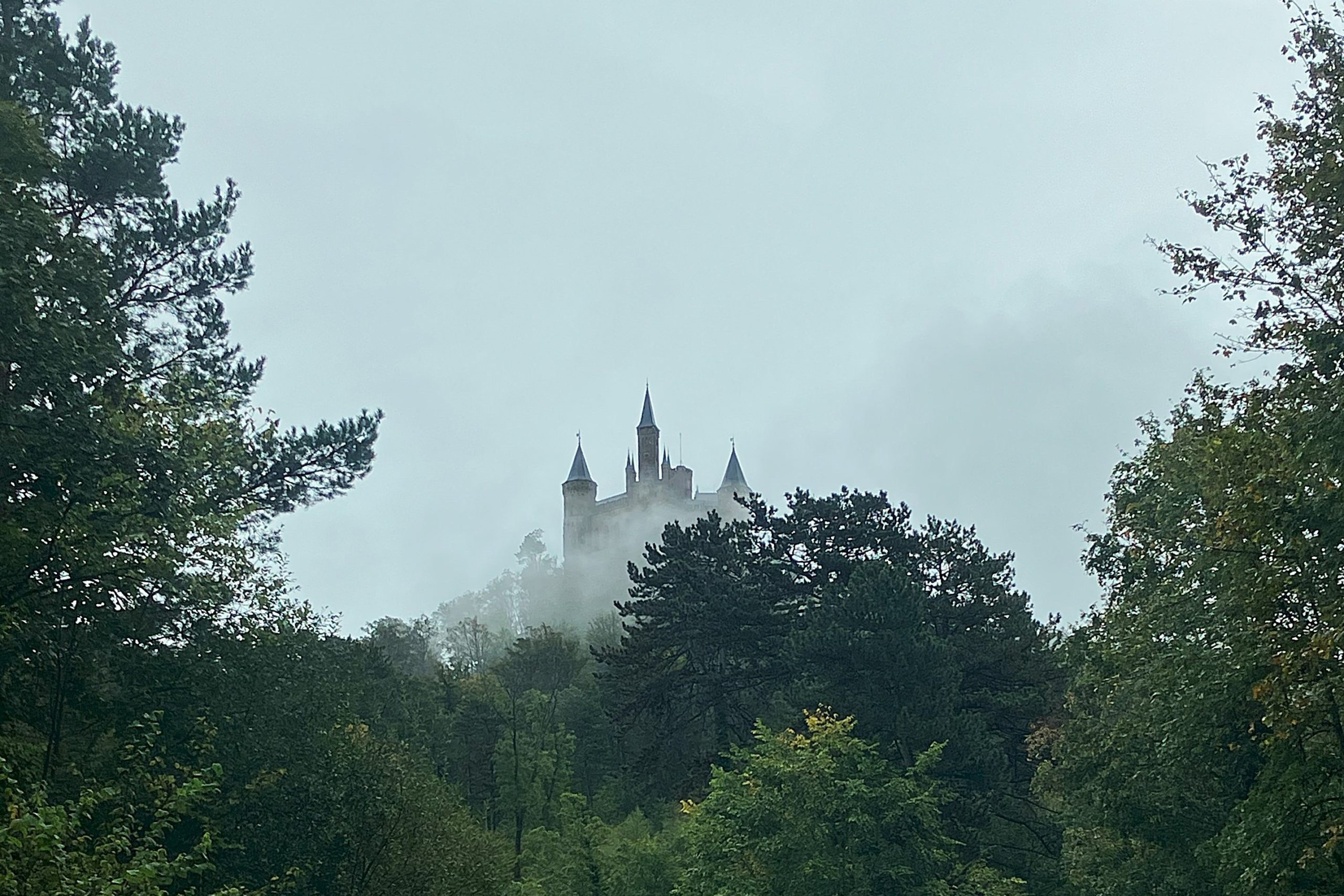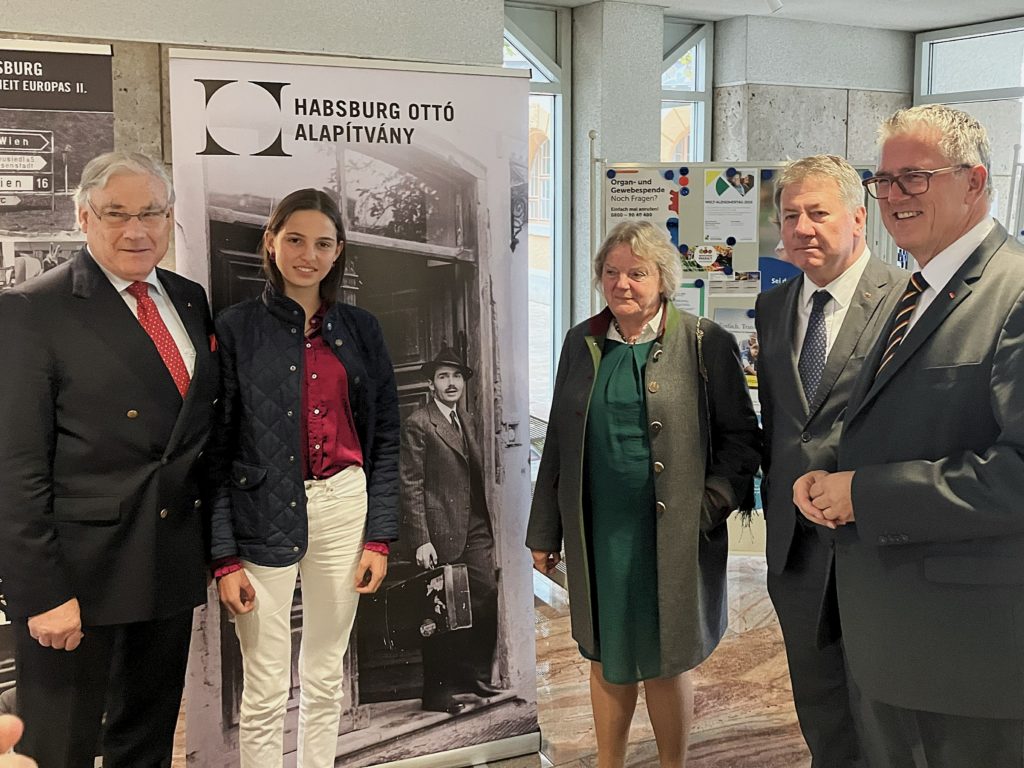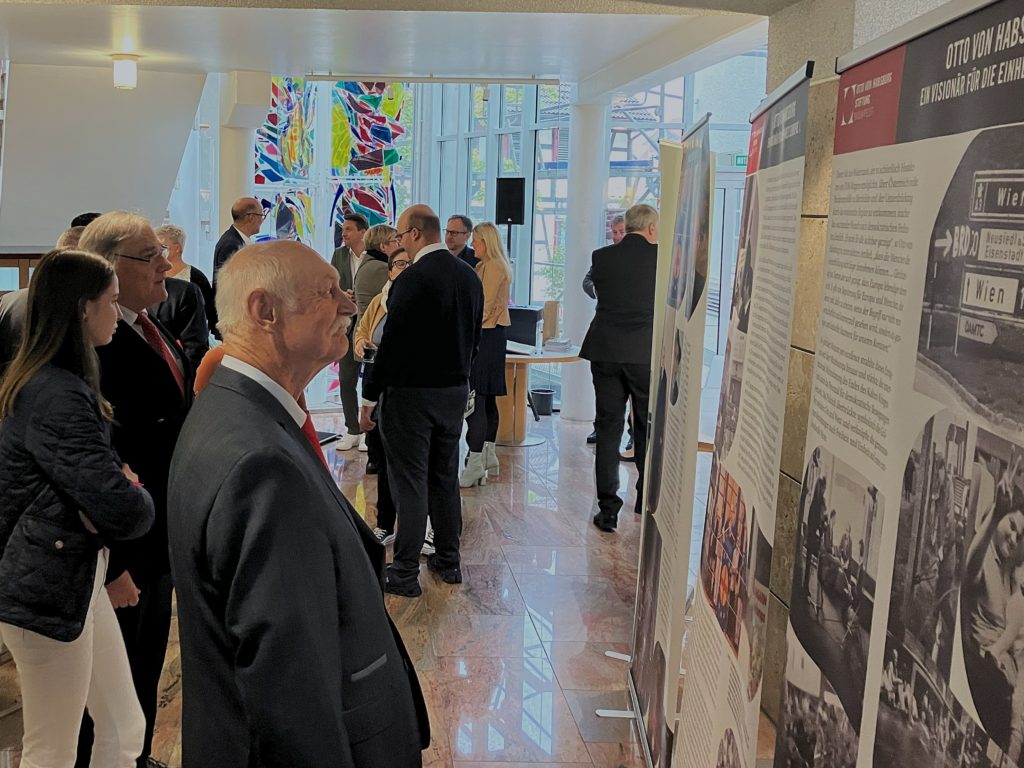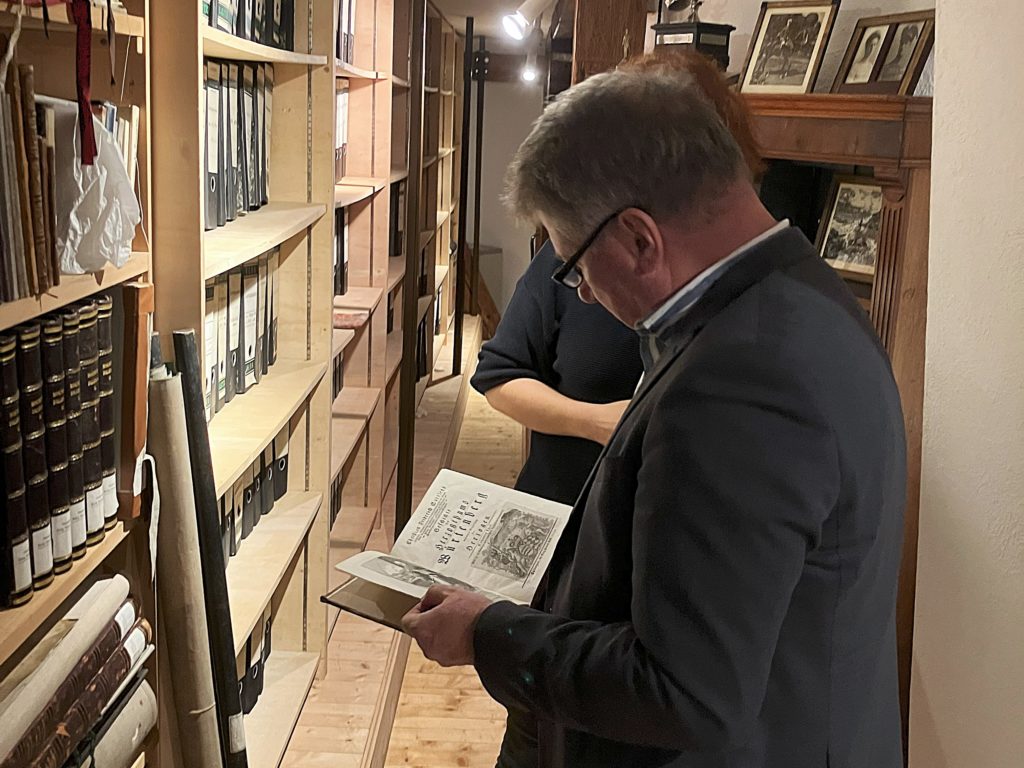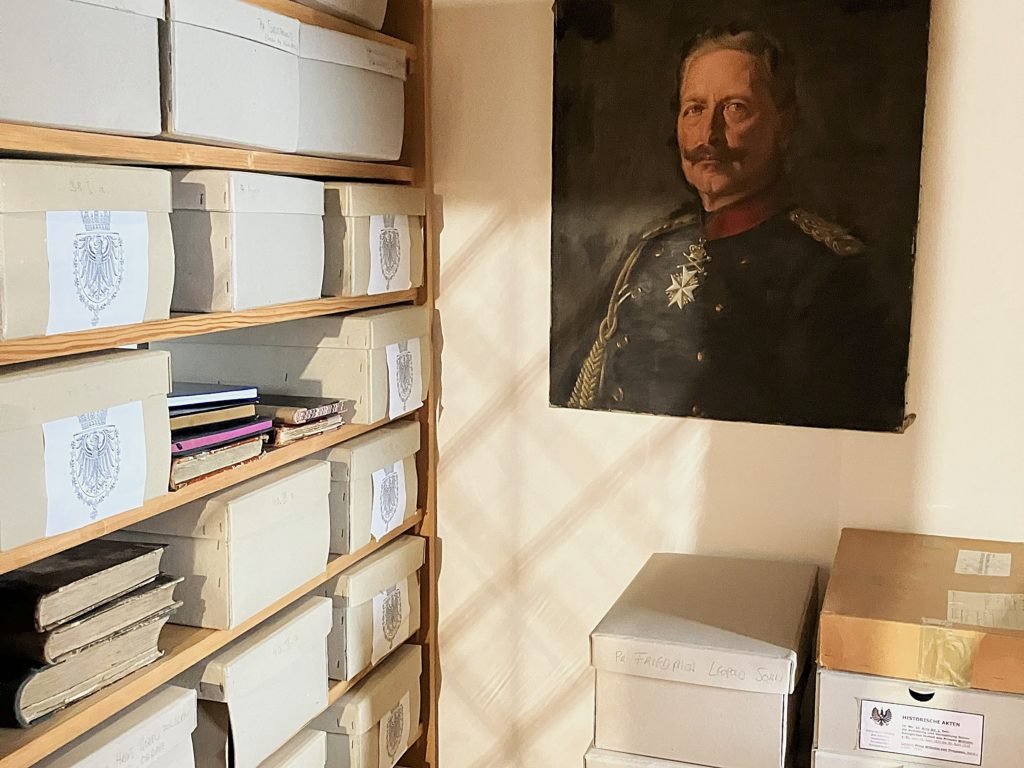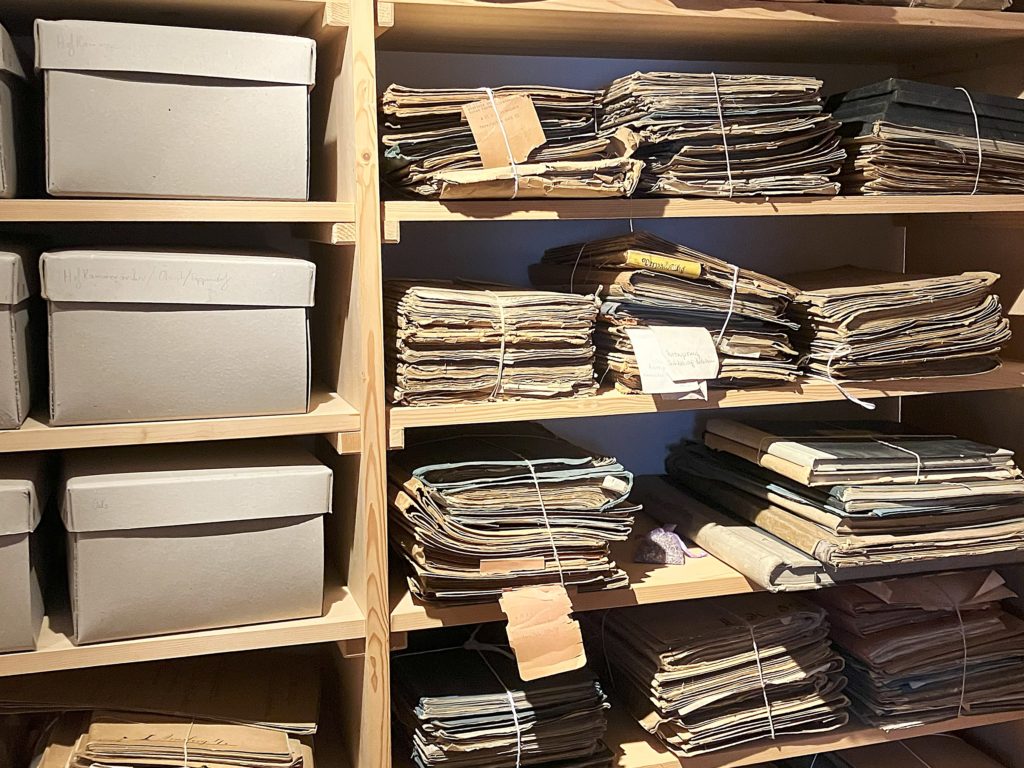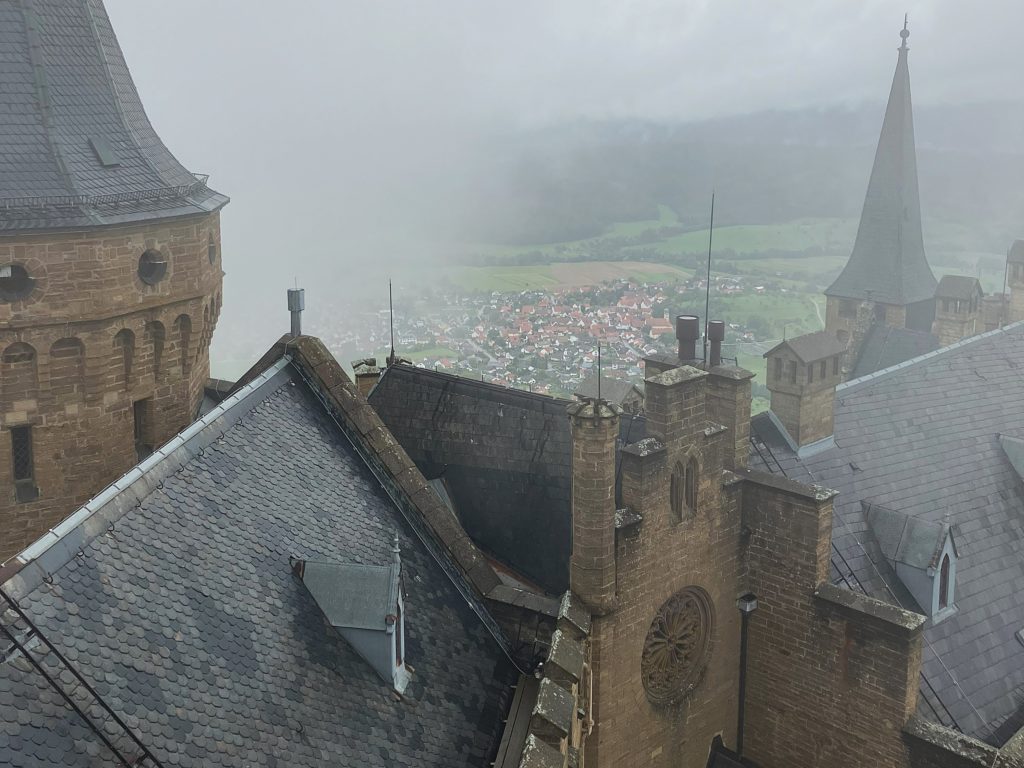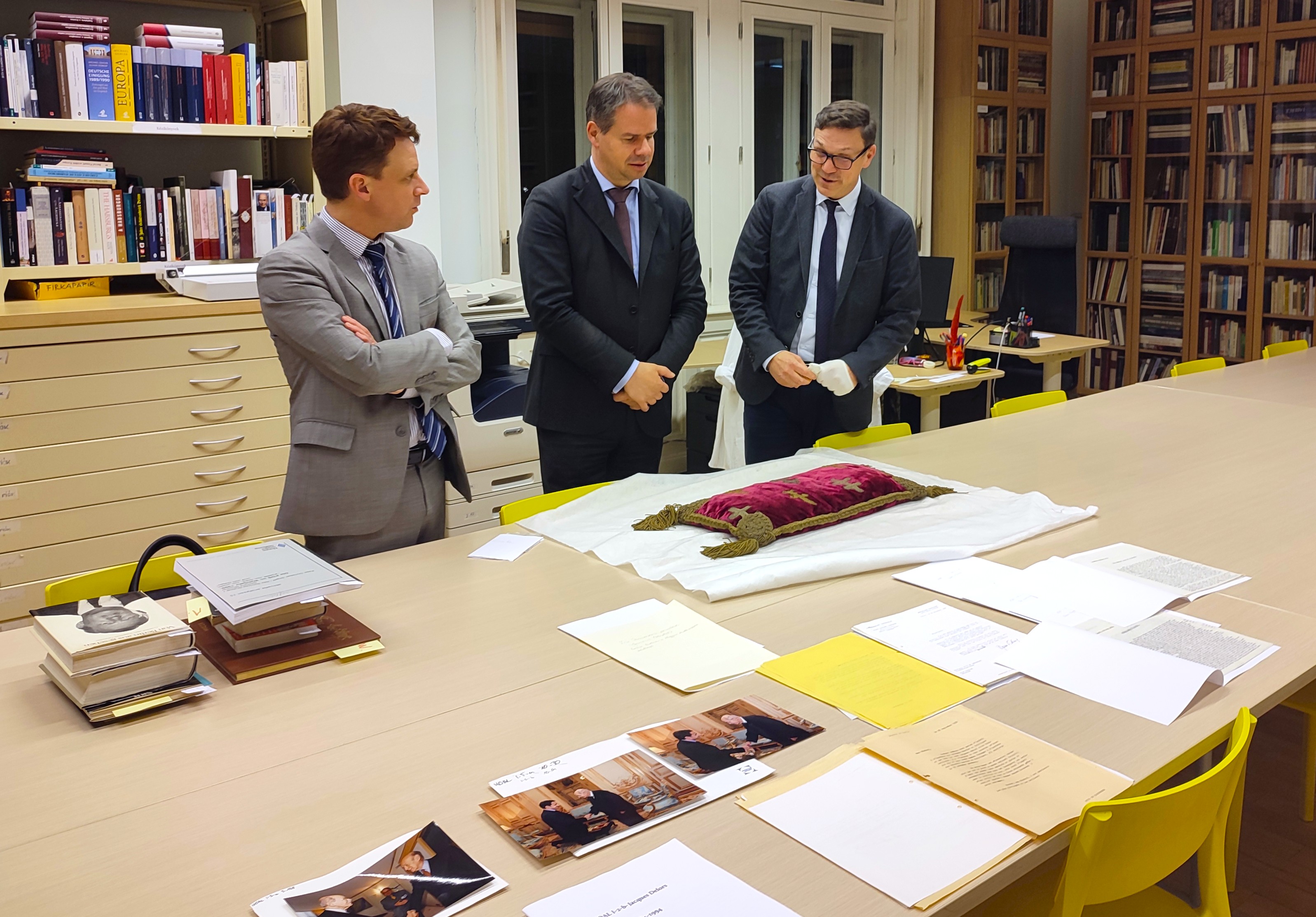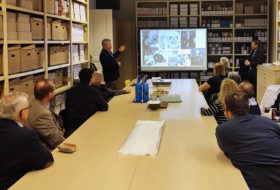The few days the members of our Foundation spent in Baden-Württemberg offered an excellent opportunity to cultivate relations with other collections as well. The visit in spring by Oskar Prinz von Preußen, who is also the Grand Master of the Order of Saint John, provided our colleagues with the possibility to explore the family stronghold near Bissingen, where part of the archives of the former imperial house can be found.
The backbone of the corpus in the Hohenzollern Palace consists of the economic papers of the Ministry of the Royal House (Ministerium des königlichen Hauses) and the Court Chamber (Königliche Hofkammer), supplemented by documents from the various court offices dating up to 1918, as well as some files and photographs from the family bequests. During the conversation, it became clear that the former German dynasty faced some challenges and dilemmas in preserving, processing, and researching the archives accumulated over the centuries, which our Foundation could help address.
Viewing the records relating to our namesake was a fascinating experience, revealing that in the second half of the 20th century, the Hohenzollerns also recognised that Otto von Habsburg’s commitment and vision were essential for the future of the continent; moreover, the imperial ideal he represented, adapted to modern political circumstances, could play a pivotal role in the unification of Europe.
The significance of thinking in broader historical and political perspectives was highlighted by the event in Metzingen on 3 October, on German Unity Day, which was attended by Archduchess Andrea von Neipperg, the eldest daughter of Otto von Habsburg, accompanied by her husband, and eldest granddaughter.
“Only those who know the past can understand the present and shape the future.” This phrase, attributed by many to the German Social Democratic politician August Bebel and frequently used by Otto von Habsburg as well, was the opening of the address by Carmen Haberstroh, Mayor of Metzingen. In a personal reminiscence, the leader of the twin town of Nagykálló underlined that the fall of the Berlin Wall and the subsequent German reunification were among the defining moments of her political awakening.
Michael Donth, a CDU politician representing the region in the Bundestag, quoted East German communist leader Erich Honecker, who named the Pan-European Picnic as one of the origins of the political processes that led to the collapse of the German Democratic Republic and the break-up of the Eastern Bloc. The politician also expressed regret that Hungary’s contribution had not received the recognition it deserved in German commemorative politics.
In his presentation, Gergely Prőhle recalled that through his family history and later during his studies in Jena and Hamburg, he experienced the tragedy of the German division. Otto von Habsburg, whose optimism and political vision resonated in Europe and the American continent, was instrumental in overcoming this divide. The former Crown Prince’s 1966 essay, previously published on our website, in which he argues that communism is unsustainable in the long term, profoundly influenced the critical figures of the subsequent Reagan administration. The director of our Foundation stressed that Otto von Habsburg had a particular political attitude, not seeing politics as a means to gain profit but rather as a means to achieve the common good based on his goals and values. Keeping his memory alive on the day of German Unity and in the face of current realities and challenges in European and world politics seems paramount.
